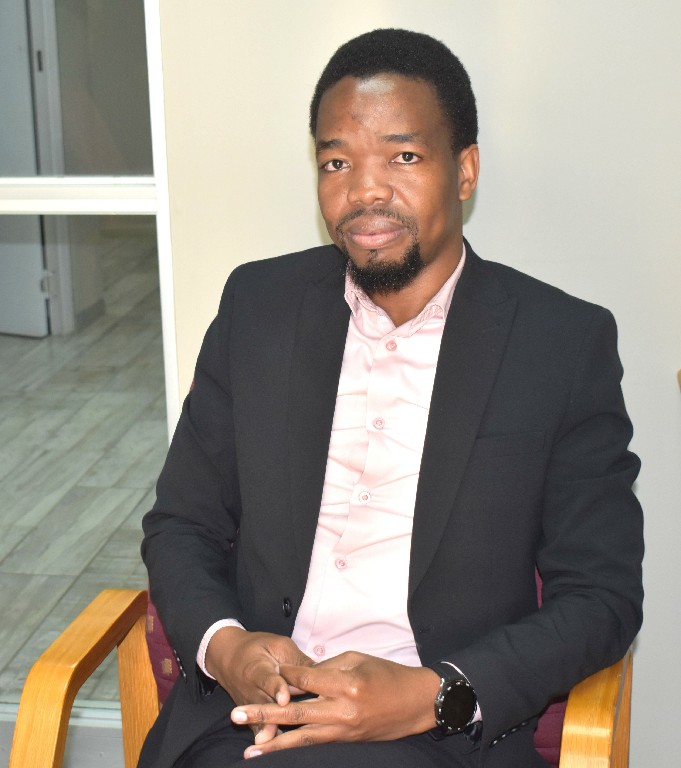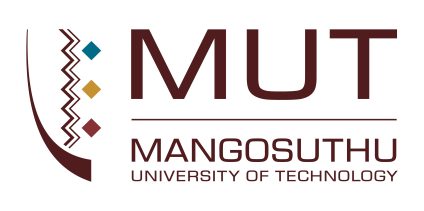



SRC Member and students prepare for graduation: Ticket collection underway



Institutional Planning Head appointed to a continental research board
Dr Liile Lekena-Bayaga, Acting Senior Director: Institutional Planning and Research, has been elected to serve on the Board of Directors of the Association for Institutional Research (AIR), a global association for professionals engaged in strategic planning, institutional research, decision support, statutory reporting, and institutional effectiveness and efficiency. Dr Lekena-Bayaga said the organisation “holds a strategic relevance for our sector”. A “pleased” Dr Lekena-Bayaga said this appointment follows her four-year leadership within the Southern African chapter (SAAIR), where she served first as Deputy President and subsequently as President. Dr Lekena-Bayaga said she was approached and encouraged to consider standing for election at the AIR Forum held last year. “After nomination and a rigorous process, I am humbled to have been elected, making me the first person from Africa, working on the continent, to serve on this global board,” said Dr Lekena-Bayaga. Dr Lekena-Bayaga said the appointment does not only carry great

Engineering sector implements guidelines for safety and efficiency
On 1 April 2025, the Identification of Engineering Work Regulation (IoEWR) came into effect in all engineering fields and engineering works in South Africa. IoEWR, or IDoEW, defines which engineering tasks can be performed by individuals registered with the Engineering Council of South Africa and distinguishes the nature of work from one registration category to another. Anil Lonappan, a Lecturer at the Department of Electrical Engineering who sits on six committees of ECSA (Engineering Council of South Africa), explains that professional registration with ECSA is a mandatory and legal requirement for those involved in any engineering work in South Africa. ECSA is a signatory to three international accords: the Washington Accord, which recognises the equivalence of accredited engineering degree programmes and allows graduates to have their qualifications acknowledged in other signatory countries; the Sydney Accord, which focuses on the recognition of engineering technology programmes; and the Dublin Accord, which pertains

Two more MUT academics receive higher NRF ratings
The MUT research agenda is becoming stronger as the number of rated researchers at the university increases. Lately, the Institution has welcomed the news that Professor Papy Numbi of the Department of Electrical Engineering and Dr. Courage Mlambo of the Department of Public Administration and Economics have received new National Research Foundation (NRF) ratings. Professor Numbi’s Y2 has been upgraded to C2. This represents a significant leap by Professor Numbi, from the lowest rating to the middle rating. Dr Mlambo has been given a C3 rating. The C rating is for established researchers with a recent record of productivity in the field who are recognised by peers as having produced a body of quality work, the core of which has coherence and attests to ongoing engagement with the field. C-rated researchers will have demonstrated the ability to conceptualise problems and apply research methods to investigate them. Regarding the C2 rating,

MUT farmer graduate to inspire youth on radio
While it is true that many people in South Africa and beyond do not know when they will have their next meal due to food insecurity, it is also true that solutions are possible. The first part of the solution is a change of mindset. This is what Spindile Xulu, an MUT Community Extension graduate did. Xulu decided to apply the skills and ideas she acquired from her grandmother and MUT and started a farming career. Xulu is now a published emerging farmer. On 8 April 2025, Xulu will be featured on Umlazi FM’s Midmorning Zone, discussing farming. “I will be talking about youth empowerment through agriculture,” Xulu said. The organisers chose her because they “like my work and want me to inspire other young people,” she said. Xulu’s message to the youth is that they do not have to wait for employment; instead, they can start a business using

Environmental Health Department integrates insights from Chemistry expert to strengthen women’s empowerment initiatives
The University is directly benefiting from the annual Science, Technology, Engineering, Mathematics, and Innovation (STEMI) lectures of the Academy of Science of South Africa (ASSAf). The organisation hosted its first lecture on 27 March 2025. The speaker was Professor Catherine Ngila, retired academic from the Republic of Kenya. This event, brought to MUT by the University’s Institutional Advancement (IA), and the Faculty of Applied and Health Sciences, underscored the critical role that STEMI plays in South Africa’s economic development, innovation landscape, and social progress. Professor Ngila focused on several areas related to education. However, her primary goal was to explore how STEMI could be utilised to empower women and young people. Empowering these two sections of the community is what she does through her organisation, the African Foundation for Women and Youth in Education, Science, Technology, and Innovation (ESTI), which she founded. Although retired, her bag is full of the

MUT Sport inducts coaches
The sporting programme at MUT has been given a boost with the induction of coaches, managers, instructors, and facility and gymnasium attendants on 28 March 2025 at the Student Centre. The Deputy Director: Sport and Recreation, Siyabulela Mkwalo, said a day-long programme was designed to equip coaches with the necessary knowledge of university procedures, coaching methodologies, and leadership skills to enhance their effectiveness in their respective roles. A total of 38 staff members have been appointed on performance-based contracts. Their appointment is based on relevant qualifications, experience, knowledge, and skills. Through the induction event, coaches and staff were equipped with the necessary knowledge and tools to perform their duties; and to equip the coaches with essential tools for safeguarding sports, and get a broad insight into sports administration procedures, including compliance and reporting structures from an experienced professional coach of a Premier Soccer League (PSL). A very vital part of

MUT coaches energized after insights from successful mentor
While physical resources play a significant role in a team’s success, the MUT Sports coaches hired for the 2025 academic year will have more than just resources to rely on. They will also call upon the vast information they received from one of the most successful soccer coaches in the country, Manqoba Mngqithi, the current coach of Lamontville Golden Arrows, a Premier Soccer League club. Mngqithi won nine trophies with Mamelodi Sundowns. These include winning an Africa Champions League trophy. On 28 March 2025, at the induction of 38 staff members, Mngqithi shared his journey to stardom with the coaches. He told them that the journey is a litany of successes and failures, in some cases a result of his ignorance, but he learned a great deal from everything that happened to him as he progressed from one level to the next. Here are some of the many lessons that

MUT Vice-Chancellor has ‘fireside chat’ with staff and student leaders
The University’s Vice-Chancellor and Principal, Professor Nokuthula Sibiya, invited staff and student leaders to discuss issues that are important to all for the smooth running of the University. Professor Sibiya was honouring one of the promises she made when she was appointed to her position last year; to have an open communication channel with staff and students. Upfront, Professor Sibiya thanked staff and student leaders for dedicating their time to her request. She told them that she needed them to work with her to realise her vision for the University: to transform MUT into a leading Institution of higher learning, recognised for its academic excellence, innovation, and positive social impact. “I see MUT as a University that fosters an inclusive and dynamic learning environment, where both staff and students are empowered to reach their highest potential,” Professor Sibiya said. Professor Sibiya said the ‘VC in Conversation’ with the MUT community

Department of Education hails CEAD reading project a big success
The drive by the University’s CEAD to empower pupils from the local primary schools continues to bear fruit. Commenting on the reading competition that took place at Umlazi Township’s Ngilosi Primary School on 20 March 2025, Saloshnee Pillay, English Subject Advisor, Umlazi District, said the standard of the competition had gotten higher. The Director of the CEAD, Professor Busisiwe Nkonki-Mandleni, told the pupils that the directorate’s relationship with the community was governed by Goal 3 of the University’s Strategic Plan. Professor Nkonki-Mandleni said their guiding philosophy was that their relationship with communities should be reciprocal. “Our interaction with the community becomes part of the curriculum. We start with the pupils, so they learn good skills at a very early stage,” said Professor Nkonki-Mandleni. She said her directorate was aware of cases where individuals at a very high level could not write a report. Their efforts at empowering the pupils would

Air pollution expert from India impresses her South African audience with her presentations
The University’s efforts at communicating the correct information about the dire effects of the changing climate have been given a massive boost lately. On 14 March 2025, the University’s Faculty of Applied and Health Sciences welcomed Professor Kalpana Balakrishnan, an ASSAf Distinguished Visiting Scholar, Dean: Research, Professor and Director WHO Collaborating Center for Occupational and Environmental Health, Sri Ramachandra Institute for Higher Education and Research (SRIHER) Chennai, India. Professor Balakrishnan was in the country to make presentations to MUT and several other HEIs. Her visit was hosted by the Academy of Science of South Africa (ASSAf), the South African Medical Research Council (SAMRC), UWC, and MUT. The opportunity to host Professor Balakrishnan was described by Professor Caradee Wright, a leading Chief Specialist Scientist: Environment and Health Research Unit at the South African Medical Research Council (SAMRC), as an “incredible opportunity”, and a “national activity”. Professor Balakrishnan is a world expert
